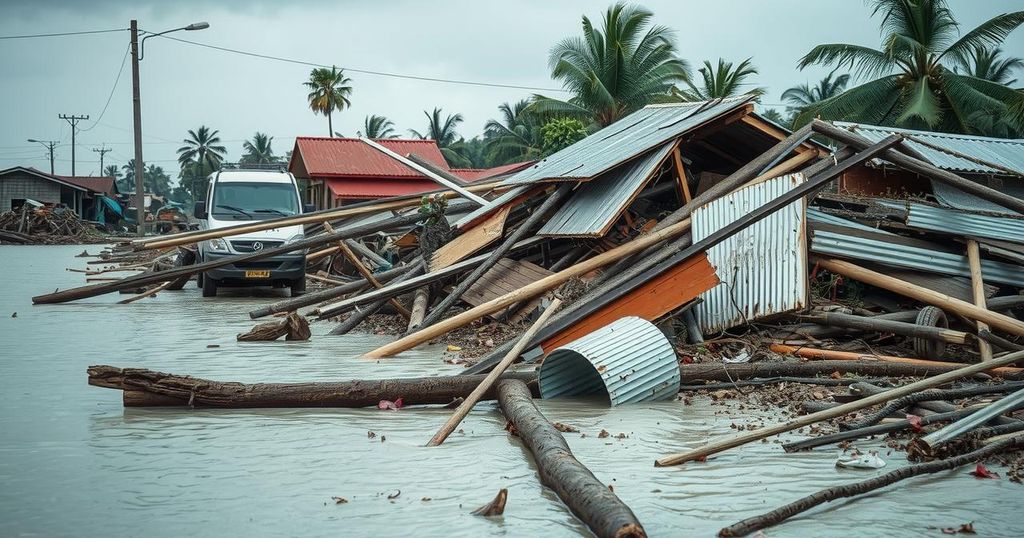World news
AC, ACACIO TEMBE, AFRICA, CAN, CANJAR AMADE, DEATH TOLL, DISASTER MANAGEMENT AGENCY, EMERGENCY RESPONSE, LUISA MEQUE, MALAWI, MAYOTTE, MECUFI, MOZAMBIQUE, NATIONAL INSTITUTE FOR DISASTER RISK MANAGEMENT AND REDUCTION, NATIONAL WEATHER AGENCY, NATURAL DISASTER, NATURAL DISASTERS, NIASSA, PEMBA, VOA, WHATSAPP
Amira Khan
0 Comments
Tragic Impact of Cyclone Chido in Mozambique Leads to Loss of Life and Extensive Damage
Cyclone Chido has caused the tragic deaths of at least 34 individuals in Mozambique, with over 43 reported injuries. Approximately 2.5 million people have been affected by the disaster, particularly in Cabo Delgado province. The cyclone’s legacy is heightened vulnerability to climate phenomena, prompting concerns over increased cyclones and flooding ahead.
Cyclone Chido recently struck northern Mozambique, resulting in the tragic loss of at least 34 lives and injuring 43 others, according to reports from the country’s disaster management agency. Rescue teams are continuing their search for survivors amidst the rubble, with initial assessments indicating that around 2.5 million people have been adversely impacted by the cyclone. The disaster particularly devastated several districts in Cabo Delgado, including the capital, Pemba, which experienced extensive damage.
The cyclone made landfall on Sunday in Mecufi district, where reports indicate near-total destruction with homes entirely demolished. Canjar Amade, a resident who experienced the cyclone firsthand, described the harrowing event, stating that “the wind took the sheets off during the night, and the house fell down Monday morning.” Meteorologist Acacio Tembe noted that residual effects such as rain and strong winds are still being felt in Niassa and Cabo Delgado provinces as the system progresses toward Zimbabwe.
This catastrophic event is a grim reminder of Mozambique’s vulnerability to climate change, as the country frequently endures severe weather during the rainy season from October to April. Experts project that with the anticipated La Nina phenomenon in southern Africa in early 2025, occurrences of heavy rains and tropical cyclones are likely to intensify in the Indian Ocean region, raising concerns about flooding in already drought-stricken areas.
Mozambique faces significant challenges related to climate change, making it one of the nations most severely affected by environmental shifts. The rainy season extends from October to April, bringing the risk of seasonal flooding and tropical cyclones. Cyclone Chido’s impact aligns with previous patterns of extreme weather in the region, highlighted by the continuous threat of disasters exacerbated by climate fluctuations. Experts are particularly concerned about the forthcoming La Nina conditions, which could further increase the frequency of severe weather events in southern Africa.
Cyclone Chido’s aftermath has resulted in considerable loss of life and extensive damage in Mozambique, highlighting the country’s ongoing battle with climate-related disasters. As rescue and recovery operations continue, the scale of the devastation underlines the urgent need for enhanced disaster management and climate resilience strategies. With predictions of worsening weather patterns, it is vital for authorities to prepare for future challenges posed by climate change.
Original Source: www.voanews.com




Post Comment